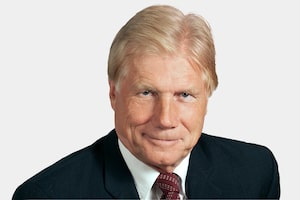If Stephen Harper is to serve his party well, he has a critical decision to make within a few months. He has to let it be known whether he will lead the Conservatives into another election.
If he delays that decision until next year, he will leave his successor – factoring in the many months it takes for a leadership race – up against the wall. The successor will have no time to establish a presence or record before going into the 2015 election campaign.
Mr. Harper has seen what happens when other leaders delay the decision. Brian Mulroney waited until the last year of his second mandate to turn the crown over to Kim Campbell. She had to call an election right away. She was unprepared and got trounced. Pierre Trudeau waited until his fourth mandate's last year before calling a leadership convention in 1984, leaving John Turner little time – though he could have waited a bit longer – to call an election. He, too, was crushed.
The problem for Mr. Harper is that he needs more than a few months to make a well-informed judgment on whether he has a good chance of winning again. The assumption is that he wants another term. He loves power, he has had a good run and he wants to extend that run.
But the arrival of Justin Trudeau as Liberal leader has changed the political dynamic. If the opinion polls are to be believed – a big if – the Liberals are a big player again – meaning there are new risks in Mr. Harper's trying to go for another win.
The Trudeau name is his worst nightmare. Mr. Harper's animosity toward the Liberalism of Pierre Trudeau was what ignited and drove his political ambition. Nothing would plague him more than having a Trudeau succeed him and begin turning back his conservative advances.
Justin Trudeau is likely to enjoy a honeymoon, as most new leaders do, for several months after his coronation this weekend. Even by the end of the year, it might still be too early to know whether or not Sir Galahad's bubble will burst.
By that time, potential successors to Mr. Harper will be becoming restless. There's John Baird and Jason Kenney who would represent the party's right flank. And there's James Moore and former cabinet minister Jim Prentice who could represent the moderate side. But would any of them have a better chance of winning than Mr. Harper? Not likely.
The Prime Minister will bear that in mind. At the same time, he has the comfort of knowing that, should he step down, he will do so as one of the great Conservative success stories, having led the party from nowhere when he took over the Canadian Alliance in 2002, through the subsequent merger with the Progressive Conservatives and then three election victories.
If he decides to stay, he must not only face the Trudeau phenomenon but also the problem – as an Ipsos Reid poll shows – that people are getting tired of him and his secretive, closed style of governance. Some tried to defend him for his latest muzzling effort, one that targeted his own MPs. They failed to see beyond the abortion issue to the broader context, the gagging here being only one of dozens of examples of this kind of conduct.
Some leaders hesitate to reveal their departure dates, using the rationale that it leaves them as lame ducks. But American presidents are lame ducks for their entire second term, and still get much done. Jean Chrétien got more done after announcing in 2002 that he was stepping down than he did in the earlier years.
Conservative Party transitions have not been handled well. Besides the Mulroney-Campbell example, there was the wrenching internal party wars that followed John Diefenbaker's election loss in 1965 and Joe Clark's 1980 election defeat.
Mr. Harper can avoid the pitfalls of the past by making his decision to stay or go at a time his party would best benefit to know.
 Lawrence Martin
Lawrence Martin